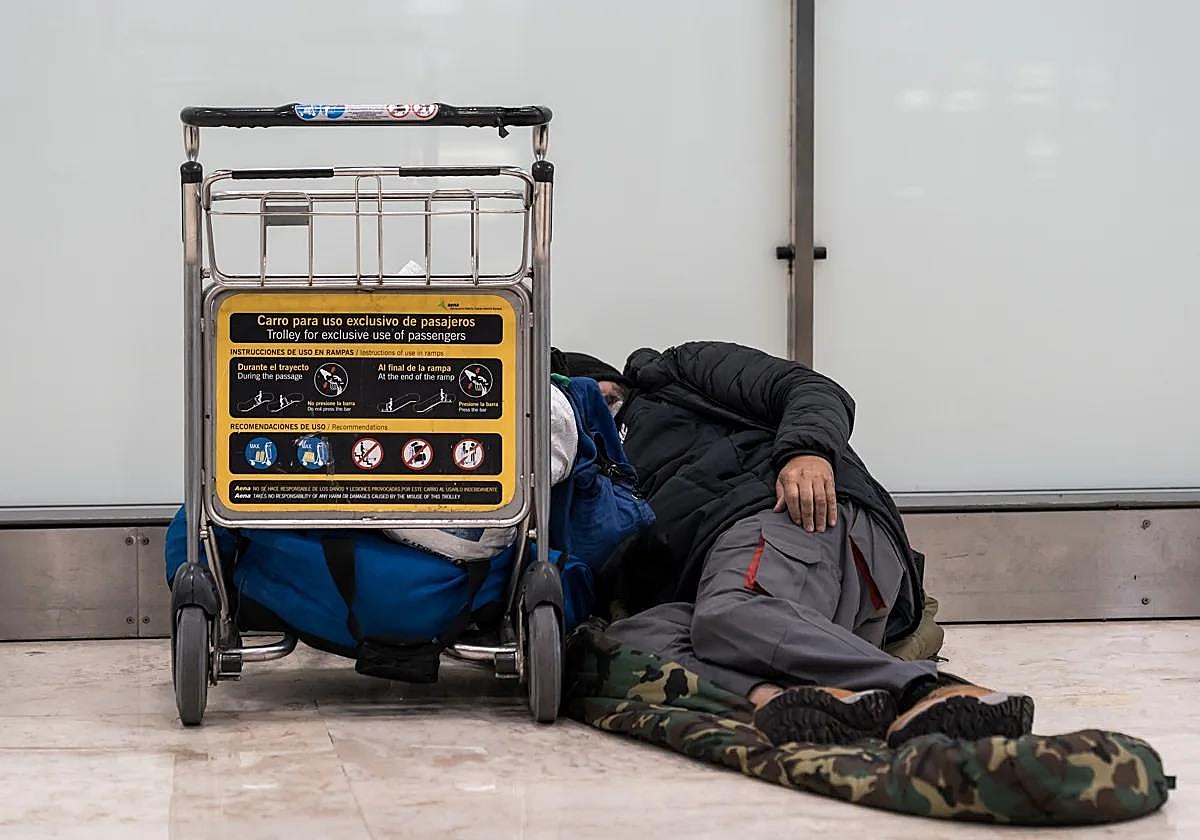A quarter of all people in Spain remain trapped in poverty despite significant improvement in last decade
Despite the nation having the lowest rate since 2014, some 12.5 million people currently live on the breadline and a third of them are borderline destitute
Spain suffers structural poverty that, even in times of general economic improvement such as the present, affects a quarter of its population. This is according to a report carried out by the European Anti-Poverty Network (EAPN). This worrying figure dampens the optimism of last year when Spain achieved the lowest rate of poverty and social exclusion in a decade with 10% fewer citizens living in economic hardship than in 2014.
Despite the clear improvement in the rate, with a 2.9-point drop in ten years, the truth is that 12.5 million people in Spain still live in poverty on a daily basis (or close to it) and are at real risk of falling into social exclusion. This huge figure means that, even in the best recent year, 25.8% of citizens are trapped in a highly vulnerable financial situation or are at risk of falling into it in the event of some unforeseen circumstances. What is more, a third of these, just over four million people, are not only experiencing hardship but are bordering on destitution. This is what is known as severe poverty, affecting all households earning less than 644 euros per month per family member, 40% below the country's average income.
The insufficient improvement in Spain's poverty and social exclusion risk rate is evident if one looks at how far it is from meeting the UN target Spain set for itself: a 2030 target of no more than 20% of its citizens suffering significant economic hardship. This requires lowering the current rate by almost six percentage points and rescuing 2.8 million Spaniards from the poverty trap.
Child poverty is the highest in Europe, with hardship and deprivation affecting half of single-parent and large families
The overall figure indicates that poverty permanently haunts one in four Spaniards. When we look at the fine print, we see that some segments are much harder hit than others. Economic vulnerability is more noticeable among women, but it is particularly prevalent among four groups. In the case of non-EU immigrants and single-parent families (mostly headed by the mother) and large families, the poverty risk rate reaches half, double the national average. For citizens with a disability it rises to 33%.
Sadly, the most grim and relevant statistic for Spain is the staggering level of child poverty, which affects more than one in three Spanish children (34%), some 2.8 million children and adolescents. Unlike the general rate, it not only continues to grow but is already approaching the highest level of the last decade since 2015. Spain has once again led this negative ranking in the European Union in 2024, overtaking Romania as the country with the most children in poverty.
The analysis by this NGO platform (EAPN) highlights that the factor currently causing the most impoverishment and inequality in Spain is the sky-high price of housing, especially the rental market. Also, another of the most evident symptoms of poverty is energy poverty, which affects almost 18% of the population, 66% more than in 2014 and triple the figure for 2008.
Without social policy there would be twice as many
Despite Spain's enormous structural poverty, the EAPN study estimates that the rollout of the welfare state last year by central government and other bodies prevented 11 million Spaniards from falling into the risk of poverty and exclusion, doubling the country's already dire situation. The public transfer of funds that act as a lifeline for so many include family and child benefits, housing benefits, study grants, unemployment, sickness and disability benefits, pensions and the minimum living income allowance. However, EAPN reports that the authorities still have significant room for improvement in these social policies, as evidenced by the fact that Spain spends half as much as most European countries on programmes to combat child poverty.
EAPN leaders are calling on all levels of Spanish government, political parties and institutions to give urgent approval of the 'state pact against poverty' that has been stuck in Congress for months. EAPN is of the view that this agreement must include a universal childcare benefit and improve access to housing, education, work-life balance and care, while ensuring quality employment.

